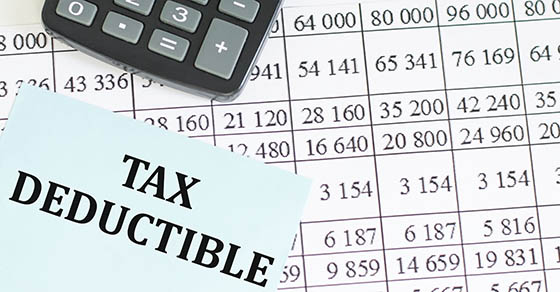
If you read the Internal Revenue Code (and you probably don’t want to!), you may be surprised to find that most business deductions aren’t specifically listed. For example, the tax law doesn’t explicitly state that you can deduct office supplies and certain other expenses. Some expenses are detailed in the tax code, but the general rule is contained in the first sentence of Section 162, which states you can write off “all the ordinary and necessary expenses paid or incurred during the taxable year in carrying on any trade or business.”
In general, an expense is ordinary if it’s considered common or customary in the particular trade or business. For example, insurance premiums to protect a store would be an ordinary business expense in the retail industry.
A necessary expense is defined as one that’s helpful or appropriate. For example, let’s say a car dealership purchases an automated external defibrillator. It may not be necessary for the operation of the business, but it might be helpful and appropriate if an employee or customer suffers cardiac arrest.
It’s possible for an ordinary expense to be unnecessary — but, in order to be deductible, an expense must be ordinary and necessary.
In addition, a deductible amount must be reasonable in relation to the benefit expected. For example, if you’re attempting to land a $3,000 deal, a $65 lunch with a potential client should be OK with the IRS. (Keep in mind that the Tax Cuts and Jobs Act eliminated most deductions for entertainment expenses but retained the 50% deduction for business meals.)
Not surprisingly, the IRS and courts don’t always agree with taxpayers about what qualifies as ordinary and necessary expenditures. Here are three 2023 cases to illustrate some of the issues:
The deductibility of some expenses is clear. But for other expenses, it can get more complicated. Generally, if an expense seems like it’s not normal in your industry — or if it could be considered fun, personal or extravagant in nature — you should proceed with caution. And keep careful records to substantiate the expenses you’re deducting. Consult with us for guidance.
©️ 2023
Receive Free financial tips & Tax Alerts!
"*" indicates required fields
Businesses usually want to delay recognition of taxable income into future years and accelerate deductions into the current year. But when is it wise to do the opposite? And why…
Navigating the realm of capital gains and optimizing tax outcomes require strategic thinking and informed decision-making. Understanding and employing effective capital gains tax strategies is crucial for businesses contemplating asset…
If your business doesn’t already have a retirement plan, it might be a good time to take the plunge. Current retirement plan rules allow for significant tax-deductible contributions. For example,…